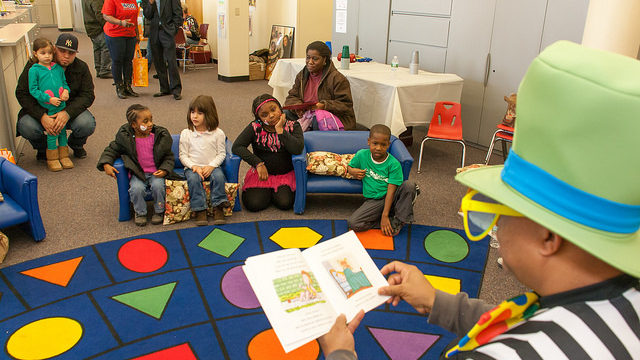This blog posts was written by Brigit Hurley from The Children’s Agenda for our 2018 PowHer The Vote campaign.
Children are the heart of our communities, and most people recognize that funding effective programs for children helps ensure a brighter future for our state and nation. But more of us need to understand that making significant investments in things like child care can also spur economic growth and development today.
A recent article in The Atlantic detailed the impact of Quebec’s universal child care program. In Quebec, the government funds early childcare centers and subsidizes private early childcare providers to ensure that all families, regardless of socioeconomic status, can receive child care. The program is appropriately called “The Family Policy”, and it was launched 20 years ago.
In addition to improving child outcomes for children from disadvantaged backgrounds and reducing the achievement gap between families with different resources, Quebec’s universal program also had a meaningful impact on the province’s economic and social progress. The implementation of a universal child care program significantly increased the workforce participation of women with small children. In Quebec, 80% percent of mothers with children below the age of five now participate in the labor force. This is 9% higher than mothers in other regions of Canada, and 15% higher than mothers in the United States. One study estimated that “The Family Policy” increased annual GDP by nearly $4 billion a year, far greater than the cost of providing universal child care.
Quebec’s model is not perfect, there are concerning disparities between better-regulated public services and the subsidized private services that policymakers in that province need to address. Still, Quebec’s bold decision to invest in children and families shows that fully funding child care can spur economic growth and greater prosperity. Sadly, New York State’s child care system is woefully underfunded. Small measures and quick fixes will not meaningfully expand access to the thousands of New York families that need it. We should instead learn from our neighbor to the north and boldly strive to make child care accessible and affordable for all families in New York State.
References
- https://www.theatlantic.com/family/archive/2018/05/quebec-child-care-family-leave/559310/.
- Geoffroy MC, Côté SM, Giguère CÉ, Dionne G, Zelazo PD, Tremblay RE, Boivin M, Séguin JR. Closing the gap in academic readiness and achievement: the role of early childcare. J Child Psychol Psychiatry. 2010 Dec;51(12):1359-67. doi: 10.1111/j.1469-7610.2010.02316.x. Epub 2010 Sep 30. PubMed PMID: 20883519; PubMed Central PMCID: PMC3283580.
- Berry D, Blair C, Willoughby M, et al. Household Chaos and Children’s Cognitive and Socio-Emotional Development in Early Childhood: Does Childcare Play a Buffering Role? Early childhood research quarterly. 2016;34:115-127. doi:10.1016/j.ecresq.2015.09.003.


